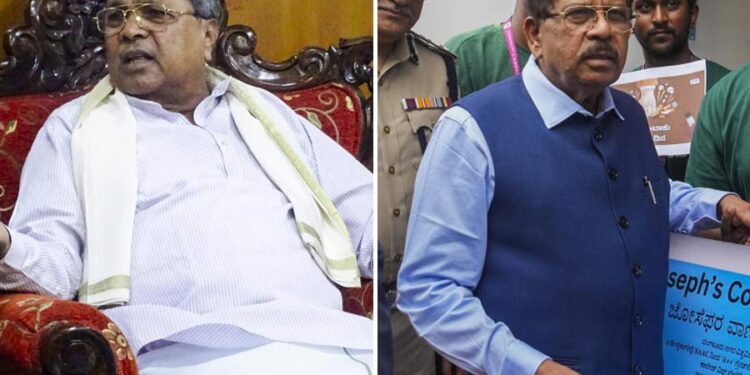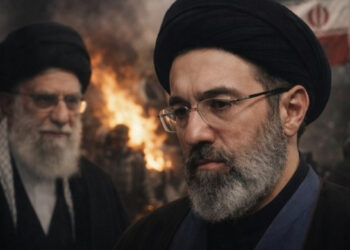DHARMASTHALA, KARNATAKA – Explosive allegations of mass rapes, murders, and secret burials in the revered temple town of Dharmasthala have ignited a firestorm of public outrage and cast a shadow over one of India’s most prominent pilgrimage centers. A former sanitation worker’s chilling claims of disposing of over 100 bodies—many allegedly victims of rape and murder—between 1995 and 2014 have reignited unresolved cases, including the 2012 Sowjanya rape-murder case and the 2003 disappearance of Ananya Bhat, a first-year MBBS student. As demands for justice intensify, Karnataka Chief Minister Siddaramaiah and Home Minister G. Parameshwara face growing scrutiny for their delayed and cautious response to the grave accusations, fueling speculation of political interference and systemic cover-ups.
A Whistleblower’s Disturbing Revelations
The controversy erupted when a Dalit man, formerly employed by the Dharmasthala Manjunatha temple administration, filed a complaint on July 4, 2025, alleging he was coerced into burying and burning bodies under threats of violence from influential figures linked to the temple’s management. The complainant, identified only as “Mr. V” under the Witness Protection Scheme, 2018, claimed in a court deposition on July 11 that he disposed of corpses near the Netravathi River, many of which bore signs of brutal violence, including rape and torture. “When I refused to obey, I was beaten and threatened. I was told we will cut you into pieces,” he stated, according to media reports.
The whistleblower’s testimony has reignited public attention on long-standing unresolved cases. The 2012 rape and murder of 17-year-old Sowjanya, which remains unsolved despite multiple investigations, and the 2003 disappearance of Ananya Bhat, an 18-year-old medical student who vanished during a trip to Dharmasthala, have become focal points of public anger. Sujatha Bhat, Ananya’s mother, filed a fresh complaint on July 15, 2025, alleging that temple staff were seen taking a young woman matching her daughter’s description. She claims she was assaulted and intimidated when she attempted to pursue the matter with authorities at the time.
Calls for Investigation and Political Silence
The allegations have prompted widespread calls for a Special Investigation Team (SIT) to probe the claims, with advocates, activists, and the Karnataka State Commission for Women urging a thorough investigation overseen by a sitting or retired Supreme Court or High Court judge. Nagalakshmi Choudhary, chairperson of the Commission, wrote to Chief Minister Siddaramaiah on July 14, demanding detailed data on missing women and students in Dharmasthala over the past two decades and highlighting systemic failures in local law enforcement.
On July 16, a delegation of lawyers, including senior advocates S. Balan and C.S. Dwarakanath, met Siddaramaiah to press for an independent probe, citing the involvement of highly influential and powerful personalities with significant political clout. A retired Supreme Court judge and activists have echoed these demands, emphasizing the need for judicial oversight to ensure impartiality.
However, the response from Karnataka’s leadership has been notably restrained. Home Minister Parameshwara previously stated that formal investigations could not commence until the whistleblower provided a court statement, a condition met on July 11. Despite this, neither Siddaramaiah nor Parameshwara has issued a direct public statement addressing the allegations, prompting criticism and suspicion. Social media posts have questioned the delay, with one user stating, “Why are CM Siddaramaiah and Home Minister Parameshwara taking time to make a direct statement on the allegations of gruesome murders in Dharmasthala? Somewhere, something is not right.”
Allegations of Police Inaction and Witness Intimidation
The controversy has been further complicated by allegations of police mishandling. On July 17, the Dakshina Kannada police claimed the whistleblower was inaccessible, hindering their ability to provide protection or advance the investigation. However, the complainant’s legal team, led by advocates Dheeraj S.J. and Ananya Gowda, refuted this, stating that their client was available and even waited by the roadside in Dharmasthala on July 16 to guide police to alleged burial sites.
Adding to the concerns, the advocates filed a petition alleging that the whistleblower’s confidential statement, recorded on July 14, was leaked and appeared in a YouTube video, raising fears for his safety. They accused the police of a lackadaisical approach and are now considering approaching the Karnataka High Court or Supreme Court to ensure the complainant’s protection.
A Town Under Scrutiny
Dharmasthala, a major Hindu pilgrimage center in Dakshina Kannada district, is renowned for its Manjunatha temple, managed by the influential Heggade family. The temple attracts lakhs of devotees annually, and the allegations have shaken its reputation as a spiritual haven. The whistleblower’s claims suggest a decades-long pattern of violence and cover-ups, allegedly involving individuals linked to the temple administration.
The case has also drawn attention to systemic issues in the region, with advocates and activists alleging that police often failed to act on reports of missing persons or unnatural deaths. The Social Democratic Party of India (SDPI) announced plans for statewide protests, demanding a thorough investigation into all unnatural deaths in Dharmasthala over the past two decades.
A Call for Justice
For families like Sujatha Bhat’s, the revelations offer a glimmer of hope for closure. “If any remains are recovered and a DNA match confirms it’s my daughter, I will at least be able to perform her last rites so her soul finds peace,” she told reporters in Mangaluru. Yet, skepticism persists among residents and activists, who point to a history of unresolved cases and allege political influence in suppressing justice.
As pressure mounts, all eyes are on Karnataka’s government to address the allegations transparently. The lack of a direct statement from Siddaramaiah and Parameshwara has only fueled public distrust, with many questioning whether powerful interests are obstructing justice. With calls for an SIT intensifying and the nation watching, the Dharmasthala case threatens to unravel a dark chapter in Karnataka’s history, demanding accountability at the highest levels.
For further details on the investigation, contact the Karnataka State Commission for Women or the Dharmasthala Police Station.





































